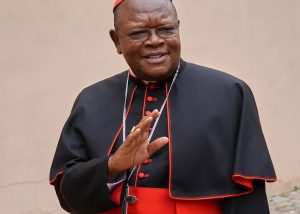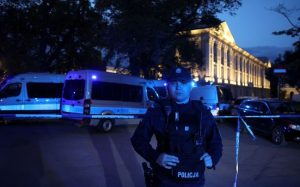Can ECOWAS survive the Sahel split? (Africanews Debates)
4 min readIn a compelling live debate aired yesterday, leading experts passionately discussed the pressing question: “Can ECOWAS Survive the Sahel Split?” The debate delved into the challenges faced by the Economic Community of West African States (ECOWAS) as the bloc grapples with deepening divisions in the Sahel region and beyond.
The panel featured three distinguished voices, each offering their unique perspectives on ECOWAS’s future and its ability to remain united amidst the growing geopolitical and security crises. The discussion was charged with differing viewpoints, reflecting the complexities of the situation at hand.
The Panelists:
- Ayo Obe – A renowned human rights lawyer, Obe presented a legal and governance perspective, emphasizing the importance of ECOWAS adhering to its institutional values, which have guided the organization for decades. Obe’s stance centered on the principle of upholding human rights and the rule of law as integral to the organization’s mission. She argued that the challenges faced by ECOWAS were not just security-related but also rooted in governance issues, which required a return to its founding principles.
- Emmanuel Kotin – A security analyst specializing in regional stability, Kotin focused on the practical security concerns affecting ECOWAS and its member states. He highlighted the growing instability in the Sahel, including the rise of jihadist groups and coups, and the impact these issues were having on the bloc’s unity. Kotin advocated for a more pragmatic approach to addressing the region’s security challenges, suggesting that ECOWAS must be flexible and responsive to the changing realities on the ground.
- Austin Aigbe – Representing WADEMOS, Aigbe contributed his expertise on grassroots democracy and political transitions. He focused on the need for ECOWAS to engage with local communities and support democratic transitions in the region. Aigbe highlighted the importance of addressing the root causes of instability in the Sahel, such as poor governance, corruption, and social unrest, in order to strengthen the foundation of the region’s political landscape.
The Debate: A Clash of Approaches
What unfolded during the debate was a stark contrast of ideas. Ayo Obe, representing the legal and institutional perspective, challenged the approach of the two male panelists, Kotin and Aigbe, who focused more on security and political transitions. Obe’s arguments were grounded in the belief that ECOWAS’s core values of democracy, rule of law, and human rights must be the foundation of any solution to the region’s crises. She warned that any shift away from these principles would risk undermining the very legitimacy of the regional body.
On the other hand, Emmanuel Kotin and Austin Aigbe offered more pragmatic solutions, acknowledging the urgency of addressing security concerns in the Sahel. Kotin stressed the importance of ECOWAS remaining agile in the face of increasing threats, including militant activity and political instability. He suggested that ECOWAS should be prepared to adapt its strategies to confront these evolving challenges, even if it meant making tough decisions that may deviate from its traditional approach.
Aigbe, while also highlighting the importance of security, argued that ECOWAS’s future lay in its ability to facilitate democratic transitions and promote political stability at the grassroots level. He noted that many of the issues in the Sahel stemmed from poor governance and corruption, and that the bloc needed to focus on fostering democratic principles to create a more stable and resilient region. Aigbe also pointed out that the success of political transitions in countries like Mali and Burkina Faso would ultimately determine the strength of ECOWAS in the years to come.
A Divided Future for ECOWAS?
The debate revealed a deep divide in the approaches toward ECOWAS’s future. Obe’s legal approach focused on the long-term preservation of democratic principles, while Kotin and Aigbe’s security-driven solutions emphasized the need for immediate and flexible responses to the region’s crises. Their differing viewpoints left viewers questioning whether ECOWAS can strike the right balance between upholding its foundational principles and responding effectively to the complex security and governance issues in the Sahel.
As the bloc faces increased fragmentation and political instability in several of its member states, the question of ECOWAS’s survival and effectiveness remains critical. The Sahel region, in particular, is experiencing a wave of coups and growing militant activity, which has left the organization struggling to maintain its authority and unity. The debate showcased how divided opinions on the region’s challenges could further complicate ECOWAS’s ability to act as a cohesive force for peace and stability.
In conclusion, the future of ECOWAS is uncertain as it navigates the delicate balance between adhering to its core principles and adapting to the rapidly changing political and security dynamics in West Africa. Whether ECOWAS can survive the Sahel split will depend on its ability to address both the underlying governance issues and the immediate security threats facing the region. The panel’s discussion underscored that the road ahead will require careful consideration of these competing factors and a united effort from all member states to ensure the bloc’s continued relevance and effectiveness.






